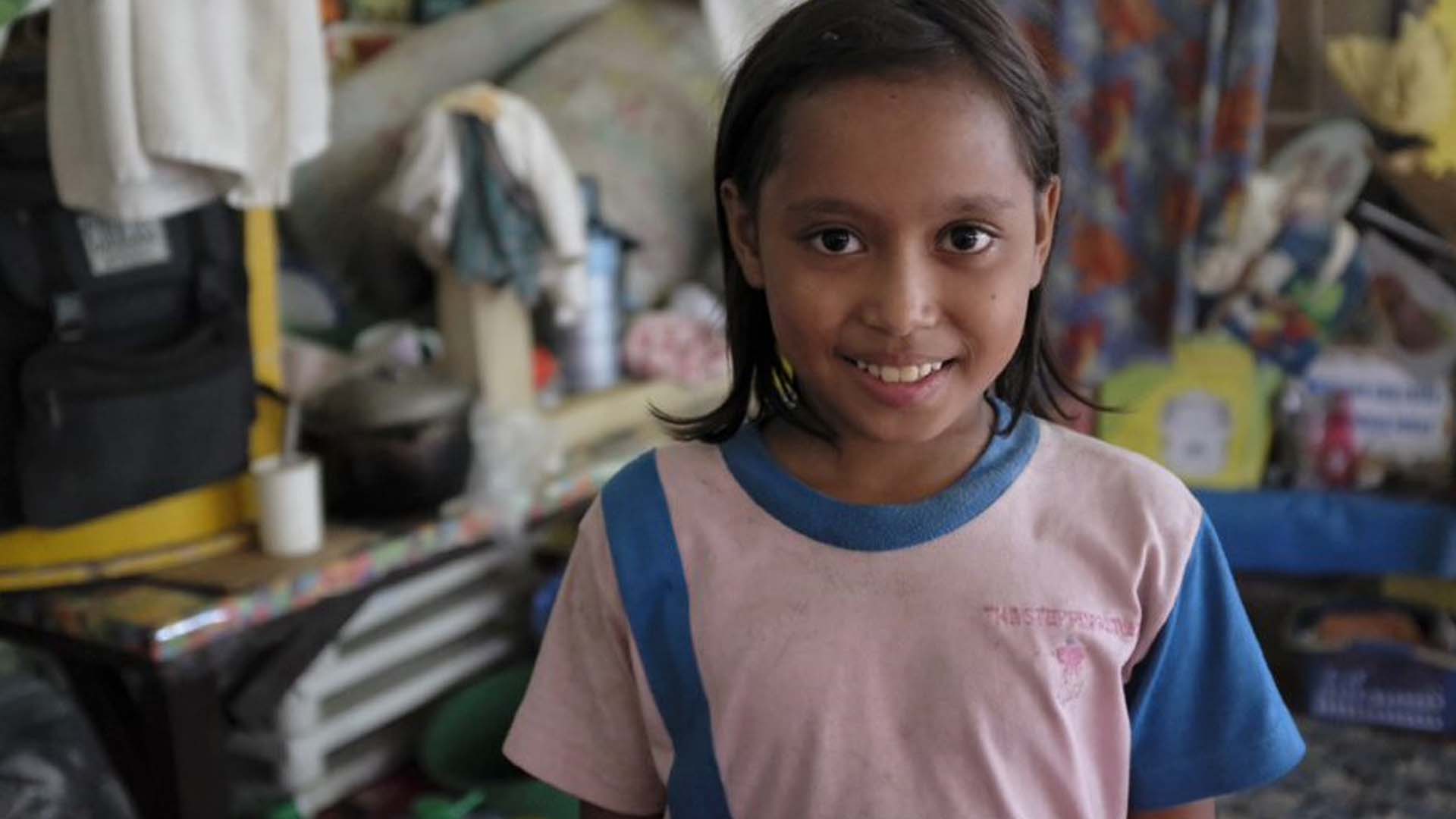“Our house was destroyed because we are poor,” said nine-year-old Maria who was among the thousands of children left homeless in the town of Malinao in Albay when Super Typhoon Rolly (international name: Goni), the world’s most powerful typhoon in 2020, made landfall.
Save the Children Philippines said a month since Super Typhoon Rolly pummeled the Bicol region, thousands of families still face difficulty recovering and rebuilding their lives and economic conditions due to the massive destruction of their sources of livelihood and disruption of other essential services.
Maria said the sound of raindrops, and roofs being torn made her and her siblings cry. Moreover, seeing her learning modules being washed off by flood broke her heart. “I hope to receive learning materials,” said Maria who wants to pursue her dream of becoming a policewoman. “I want to help those who are hurt.”
Atty. Alberto Muyot, Chief Executive Officer of Save the Children Philippines, said climate-related disasters disrupt children’s learning, destroy homes, educational facilities, health centers, and other infrastructure critical to children’s well-being.

“Disasters leave deep scars on children’s well-being because they are exposed to traumatic events such as losing homes, seeing tremendous damages, and at times, witnessing the loss of lives,” said Muyot.
Save the Children Philippines has launched a series of integrated response activities to support the needs of some 50,000 most vulnerable children and families in the provinces of Camarines Sur, Albay, and Catanduanes.

These include education in emergencies, programs on child protection, health and nutrition, mental health and psychosocial support (MPSS), as well as water, hygiene and sanitation. “Children who were affected by disasters need to go back to learning, to establish normalcy and routine in their lives,” said Muyot.
The child rights organization will also establish a satellite office in Catanduanes to support 1,200 families with unconditional multi-purpose cash assistance to help them get back on their feet. The disbursement of cash assistance will be facilitated by the Philippine Postal Corporation.

Save the Children Philippines has helped some 2,000 families, including 3,755 children by distributing life-saving items such as 3,000 plastic sheets for emergency shelter, family hygiene kits, water kits, and 1,000 household kits, as well as 2,000 boxes of face masks and 4,000 bottles of alcohol for COVID-19 protection.
Dr. Amado Parawan, Health and Nutrition Advisor of Save the Children Philippines also provided support to the health personnel of Tiwi, Albay on screening, referral, and treatment of severely acute malnourished, and moderately acute malnourished children.

On December 1, Save the Children Philippines’ Humanitarian Response Team will release the “Typhoon Rolly: One Month On” report which comprehensively covers the situation of affected children and families in terms of education, food security and livelihood, health and nutrition, water, sanitation, and hygiene, and child protection.








